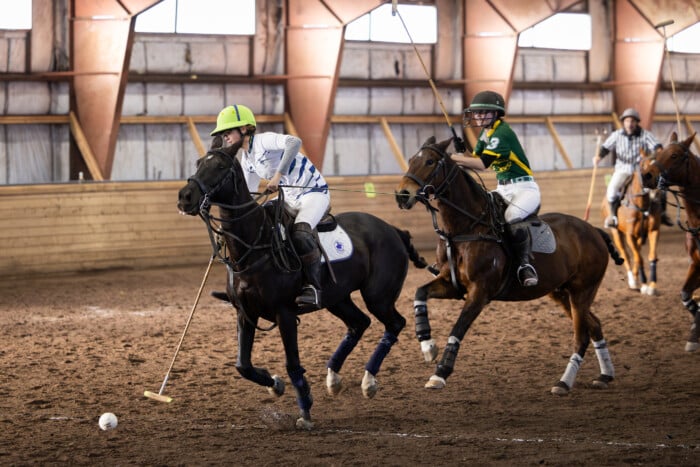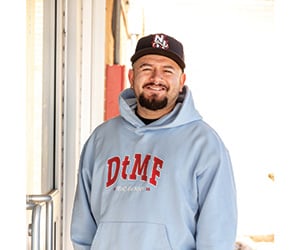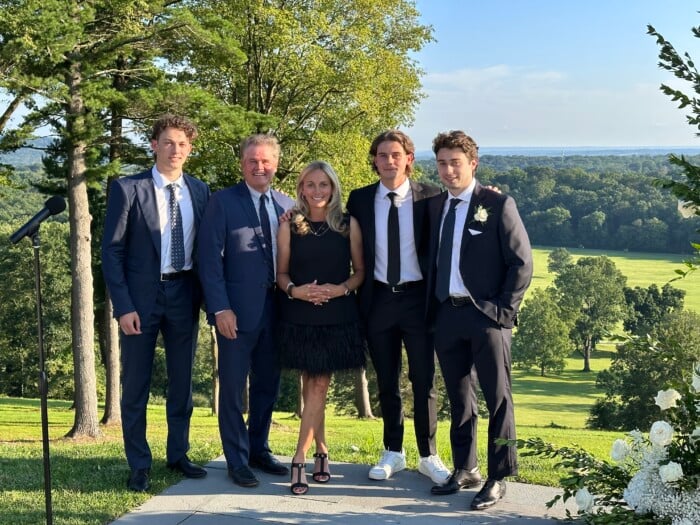G.I. Jazz- NH Jazz Orchestra Salutes Veterans with Big Band Performances
Clayton ‘Skip’ Poole and his son, CJ, salute veterans and big bands with the NH Jazz Orchestra
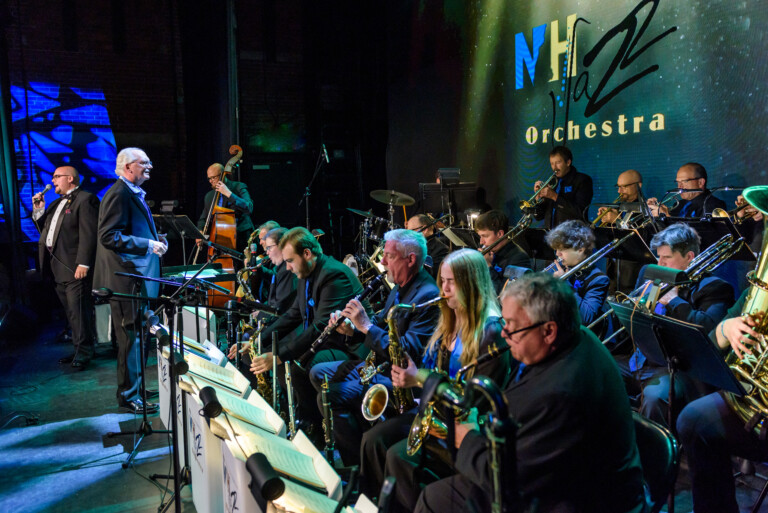
Big band music may be a blast from the past, but for Clayton “Skip” Poole and his son, CJ, it’s a living, breathing entity that evolves with every improvised solo, even when performed as its composers originally intended.
With the New Hampshire Jazz Orchestra, the Pooles aim to recreate the music of the big bands of the 1940s led by icons like Benny Goodman, Glenn Miller and Artie Shaw using the original arrangements from the era.
The New Hampshire Jazz Orchestra, comprised entirely of musicians from the Granite State, have two shows booked for this month: “A Salute to Veterans” at the Rex Theatre in Manchester on Nov. 10, and “Swing Dance Night” at the BNH Stage in Concord on Nov. 16. The orchestra visits Murphy’s Tap Room in Bedford on Dec. 21 for “A Swinging’ Yuletide” show.
Meanwhile, the Capital Jazz Orchestra, a Poole production that features professional musicians from outside New Hampshire, returns Dec. 8 for a “Holiday Pops” show in Concord at the Chubb Theater of the Capitol Center for the Arts.
The Nov. 10 Rex Theatre tribute to veterans will revive the vibe of venues like The Stage Door Canteen.
“It was this place in New York where the big bands of the day would go and perform free for soldiers on leave,” Skip says. “There’s a lot of great old black and white pictures taken of when Benny Goodman and Tommy Dorsey played there. We’re planning to do some of that music to present a historical retrospective of that time period, as well as some patriotic pieces.”
CJ, a professional stand-up bass player, and his wife, Laura, will be performing the vocals with the 19-piece band, which debuted in 2021.
While the ultimate goal is to entertain audiences, the Pooles want to present an authentic experience, down to the last quarter note.
Skip, 65, has had dual careers in the financial services industry and in music. His half-century resume as a musician includes work with Mel Tormé, Rosemary Clooney, Johnny Mathis, Andy Williams and Dionne Warwick. He also has served as music director for collegiate bands, backing and performing with Cab Calloway, “Wild” Bill Davis, The Four Freshmen and Maynard Ferguson.
In 2013, the Capital Jazz Orchestra toured for three weeks along the East Coast all the way to Florida to celebrate the 75th anniversary of Benny Goodman’s famed 1938 concert at New York’s Carnegie Hall.
Through that engagement, Skip had access to the Benny Goodman Library at Yale University, where Goodman’s original handwritten arrangements are archived.
“When we do this performance, it’s unique in the sense that the music being played is not someone redoing it or the newest arrangement, which you hear a lot of today. It’s basically the original material that was actually played in the 1940s,” Skip says.
The challenge for the musicians is to stay true to the material.
“My job with the orchestra is trying to really work on the correct interpretation, to make sure that the way a quarter note is played is the same way it was played for that material at that time frame, which is different than the way a quarter note might be played today,” Skip says.
Between two worlds
While executing the best performance of the material is the goal for both the New Hampshire Jazz Orchestra and the Capital Jazz Orchestra, the groups serve different purposes. The New Hampshire ensemble meets weekly to practice at Bedford High School, and works with the school to teach young musicians. The Capital Jazz pros are here and gone in a day.
“The New Hampshire Jazz Orchestra came out of wanting to give back a little bit to the community. The Capital Jazz Orchestra is our full professional orchestra,” Skip says. “That orchestra is made up of musicians from New York City. We go through it in three hours and do a show, and it’s like they have played together for all their lives.”
The Pooles forge a different kind of bond with the local musicians of the New Hampshire Jazz Orchestra.
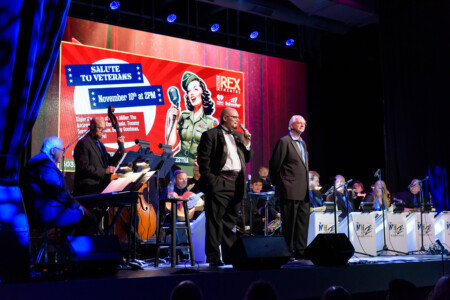
The New Hampshire Jazz Orchestra returns to the Rex Theatre in Manchester on Nov. 10 for “Salute to Veterans,” featuring music from the 1940s.
“It’s made up of a few pros, some semi-pros, some community members, some students, to learn more about the knowledge of interpretation from these different time periods. And it’s really wonderful because when I work with a fully pro-orchestra, the one thing I don’t have a lot of is time,” Skip says. “With the New Hampshire Jazz Orchestra, there are so many talented members in it, and the thought of being able to work with them once a week is a real treat.”
CJ, 31, first tried piano, guitar and tuba before taking up the bass. He says his dad never put any pressure on him to become a musician.
But he did apply a little pressure on his choice of instrument. The elder Poole had played the tuba as a professional musician and did not want his son to make the same choice. When a high school band director encouraged CJ to take up the instrument, dad gave some stern fatherly financial advice.
“I brought it home, and he immediately said, ‘Bring that tuba back to school. You’re going to want to learn a different instrument because you’re never going to have as many gigs on a tuba as you are on a bass,’” CJ says.
But timing was on CJ’s side.
“That same band director was looking for an extra bass player in the symphony orchestra so I started playing bass, and the rest was history. Man, I just clicked with the upright bass,” he says.
That financial lesson was a precursor to CJ’s future. While his title is assistant director, he’s also the one handling the bookings and making sure the bills get paid.
“I’ve always been a musician and performer, but as we’ve kind of grown our music business, I’ve transformed my role into not only just being a musician, but handling the business end of what we’re doing,” CJ says.
That’s something his dad is quite happy to leave to his son. At this point in his career, Skip would rather focus on the music.
“Now I get a chance to spend a lot of time writing and studying scores and really getting into the music and not worrying about the business side of things,” he says.
As musical director, he can focus on quality control. While the New Hampshire Jazz Orchestra offers a learning experience for upcoming musicians, the standard for performance requires practice and precision.
“These different projects are exciting to do because we get a chance to display what they’ve been working hard to produce, which is very unique,” Skip says.


